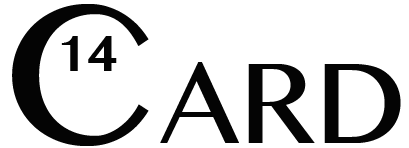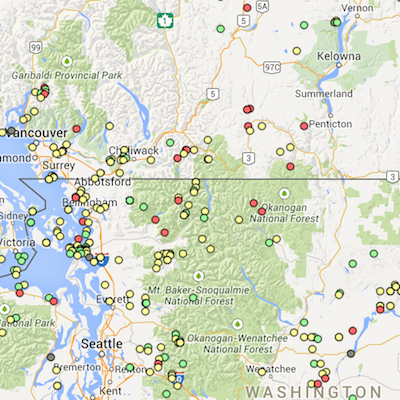Welcome to CARD 2.0
CARD UPDATES for USA:
CARD is pleased to announce the addition of over 104,000 dates from the lower 48 US states, increasing the number of dates from the region by an order of magnitude. The compilation project was sponsored by NSF and directed by Robert L. Kelly (University of Wyoming). It took place from 2014 to 2021 and involved many participants (see Kelly et al. 2022, A New Radiocarbon Database for the Lower 48 States, American Antiquity), and much goodwill and cooperation from the research community. The dataset contains primarily archaeological dates (~84%) but includes geological and paleontological dates as well. To avoid US ARPA (Archeological Resources Protection Act) violations, site locations are county centroids only. Researchers are encouraged to add dates that were missed and new dates; and to alert CARD to corrections. Note that Dr. Kelly's and his team added a second round of revisions to the USA dates that appeared in CARD in January 2024.
RESULTS THAT CONTAIN "LUNK":
CARD is largely a crowdsourced data platform. We include all the data we have available for every radiocarbon date we can upload - even if the data are incomplete. Our hope is that informed users can identify errors and gaps and help us compile the most correct data. The radiocarbon date lab number is our primary identifier, and we have some data in our system for which we do not have these values. When this occurs, we give it an arbitrary sequential laboratory unknown value of "Lunk=###". There is no LUNK lab, so If your results have a lab number that starts with "Lunk", it means we don't know what the number is. If you do, please send us a note and we will update the system.
PLEASE NOTE:
Several Indigenous communities in North America have informed us that CARD contains data from ancestors and their burials that were collected without permission and in violation of their policies. We have removed all 1702 dates associated with ancestral remains from the database. We are working with our Indigenous partners to find a solution. We will keep you posted. Please get in touch if you have questions. - Andrew Martindale
CARD:
The Canadian Archaeological Radiocarbon Database (CARD) is a compilation of radiocarbon measurements that indicate the ages of samples primarily from archaeological sites in North America. CARD also includes samples from paleontological and geological contexts. We are slowly expanding our coverage into Central and South America. These data represent a significant investment and resource for researchers interested in human history and its context.
CARD was created by Dr. Richard "Dick" Morlan of the Canadian Museum of History (formerly the Canadian Museum of Civilization), and its existence is a product of his genius and labour. In July, 2014 the Canadian Museum of History (CMH) and the Laboratory of Archaeology (LOA) at the University of British Columbia formed a partnership to revise and update the CARD platform. This current version of CARD (2.0) adds useful new features, including unlimited batch uploading/downloading of data and spatial/map visualization. However, the core of CARD remains the c14 dates painstakingly submitted by researchers across the world and compiled by Dick. We hope that this revision maintains the relationship that Dick established in one of the first crowd-sourced, big data endeavors: CARD provides utility and comprehensiveness and in exchange, researchers provide us with dates. See the HELP tab for more information and instructions on using CARD.
Our efforts to update and upgrade CARD are just beginning, and we are moving in two directions: to increase the quantity and quality of CARD data and to improve the functionality of the CARD platform. We are looking for partners to assist us in both. CARD data contains some errors and is in some cases incomplete, and we are engaged in a long-term process of scrubbing the data. We are also developing new functional tools to make CARD more valuable to researchers including the generation of heat-maps of date concentrations over time, and the selection of data via a map interface. We also have longer-term plans to add calibration sockets with existing calibration services. If you have 14C data, please upload it to CARD. If you are interested in getting involved in the expansion and development of CARD, please email us at admin@card.anth.ubc.ca.
Radiocarbon assessment has an effective range of about 250 to +50,000 years, and as a result most of the samples in CARD are associated with Indigenous archaeological sites. These represent a significant resource into aboriginal history. CARD fuzzes location data for public visitors to the database at 1:2,000,000 scale. Accessing CARD's full capabilities requires a security-account available only to researchers at accredited institutions.
As Dick wrote in CARD 1.0, "The long term future of this database will depend upon whether or not the archaeological community finds it truly useful." We hope you do.

